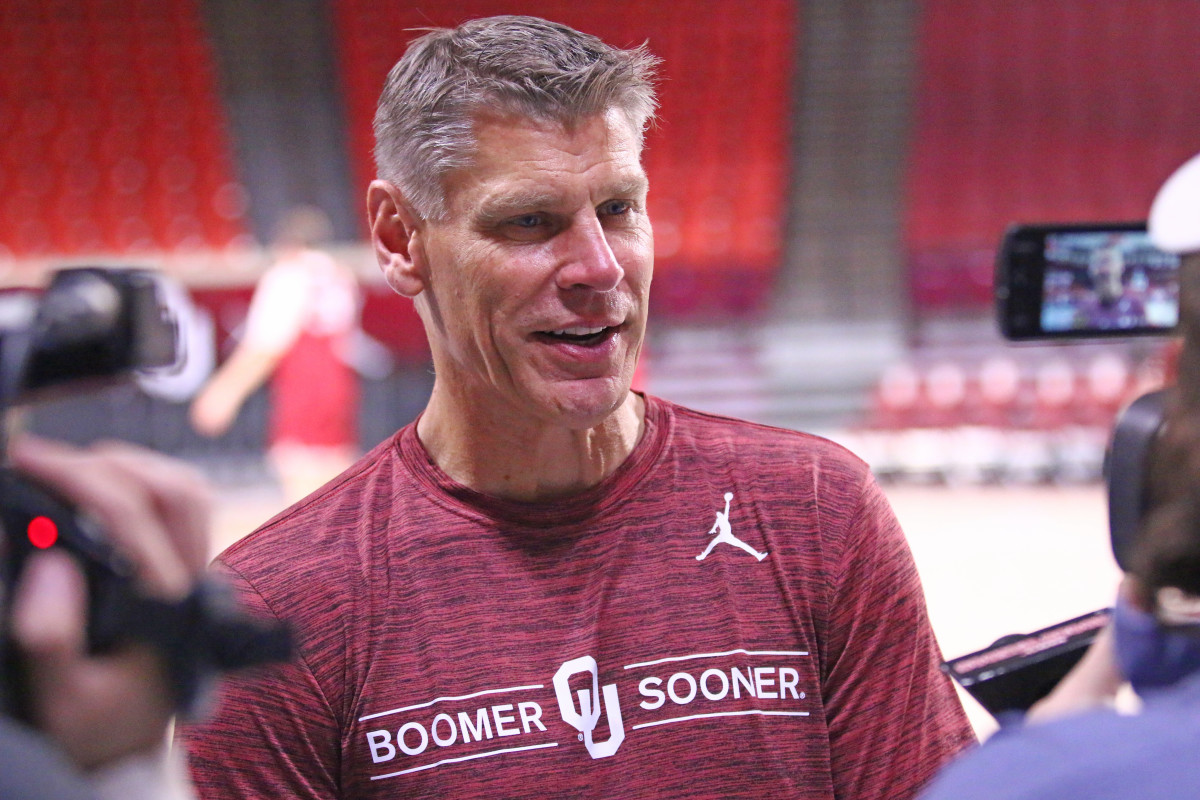The Oklahoma Basketball Organization recently made the tough decision to part ways with Porter Moser, their interim head coach, citing five key reasons behind this significant move. Despite Moser’s efforts and dedication, the organization felt it was time for a new direction to restore the program’s former glory and competitiveness.
**1. Lack of Consistent Results:**
One of the primary reasons for Moser’s dismissal was the team’s inconsistent performance throughout his tenure. The Sooners struggled to maintain a winning record, often falling short in crucial games. This inconsistency hindered their ability to make a significant impact in the highly competitive Big 12 Conference, ultimately affecting their postseason aspirations.
**2. Recruiting Challenges:**
Recruiting top-tier talent is the lifeblood of any successful college basketball program. Under Moser’s leadership, the Sooners faced difficulties in attracting and retaining high-caliber recruits. The inability to consistently bring in top prospects put the team at a disadvantage compared to their conference rivals, who continued to bolster their rosters with elite talent.
**3. Development of Players:**
Another factor that contributed to the decision was the perceived lack of player development. While some players showed improvement, the overall progress of the team did not meet the organization’s expectations. The development of young athletes is crucial for long-term success, and the organization felt that Moser’s coaching style did not adequately nurture the potential of the players on the roster.
**4. Strategic and Tactical Concerns:**
The organization’s leadership also had concerns about Moser’s strategic and tactical approach to the game. His coaching methods and in-game adjustments were often called into question, particularly in high-pressure situations. The team struggled to execute effectively in crucial moments, leading to disappointing losses and missed opportunities to secure important victories.
**5. Vision for the Future:**
Ultimately, the decision to part ways with Moser was influenced by a differing vision for the program’s future. The organization sought a fresh perspective and new leadership to revitalize the team’s culture and competitive spirit. They believed that a change at the helm was necessary to steer the program in a direction that aligns with their long-term goals and aspirations.
In conclusion, while Porter Moser’s tenure as interim head coach had its moments of promise, the Oklahoma Basketball Organization decided that a new direction was essential for the team’s future success. The five key reasons for his dismissal—lack of consistent results, recruiting challenges, player development concerns, strategic issues, and differing visions for the future—underscored the need for a change. As the organization embarks on a search for a new head coach, the hope is to find a leader who can bring stability, success, and renewed energy to the program.
Tags: Oklahoma Basketball, Porter Moser'